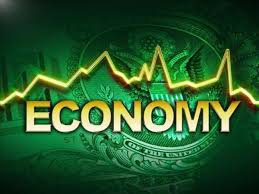By Chris Ndibe
Kristalina Georgieva, Managing Director, International Monetary Fund (IMF), has said that global economic growth is expected to fall to -4.4 per cent in 2020.
She made this known on Wednesday in Washington D. C. at a virtual media conference during the ongoing 2020 IMF/World Bank annual meetings.
According to Georgieva, over the next five years, the crisis caused by the COVID-19 pandemic can cost an estimated 28 trillion dollars in output losses.
The managing director said that the picture over the last few months had become less dire, yet there was continued projection of the worst global recession since the Great Depression.
“At the same time, we can see stars shining above us. We see unprecedented efforts in vaccine development and treatment.
“We see extraordinary and coordinated fiscal and monetary measures putting a floor under the world economy. And the world is starting to learn how to live with the virus.
“While there is tremendous uncertainty around our forecast, we project a partial and uneven recovery in 2021 with growth expected at 5.2 per cent.
According to her, all countries now face a “long ascent”- a journey that will be difficult, uneven, uncertain and prone to setbacks.
She, however recommended three policy priorities to overcome the crisis it posed and build a brighter future.
Georgievia said that the first thing to do was to continue with essential measures to protect lives and livelihoods.
“A durable economic recovery is only possible if we beat the pandemic everywhere.
“Stepping up vital health measures is imperative, as is fiscal and monetary support to households and firms.
“These lifelines such as credit guarantees and wage subsidies are likely to remain critical for some time to ensure economic and financial stability.
“Pull the plug too early, and you risk serious, self-inflicted harm,” she added.
Georgievia’s second recommendation was to build a more resilient and inclusive economy.
She said that the IMF’s new research showed that public investment, especially in green projects and digital infrastructure could be a game changer.
According to her, this has the potential to create millions of new jobs, while boosting productivity and incomes.
She said that supporting workers as they transition to new jobs was another key element of a more resilient and inclusive future.
“This is particularly important for women and young people, who have been disproportionately affected by the crisis.”
Thirdly, Georgieva recommended that debt should be dealt with.
She said that global public debt was projected to reach a record high of 100 per cent of Gross Domestic Product (GDP) in 2021.
She said this was partly because countries needed to boost spending to fight the crisis and secure the recovery.
“Addressing this issue over the medium-term will be critical but for many low-income countries, urgent action is required now.
“Given their heavy debt burdens, they are now struggling to maintain vital policy support.
“They need access to more grants, concessional credit, and debt relief.”
According to her, more than ever, strong international cooperation is needed, especially on vaccine development and distribution.
She said that faster progress on medical solutions could speed up the recovery and could add almost nine trillion dollars to global income by 2025.
“This, in turn, can help narrow the income gap between poorer and richer nations.’’
On the role of the IMF, she said that since the pandemic began, the IMF had been pressing ahead with full force and commitment with its policy advice, capacity development and financial resources.
“We have reached over 280 billion dollars in lending commitments, more than a third of that approved since March.
“We still have substantial resources from our one trillion dollars lending capacity to help support our members.
“We have provided financing to 81 countries, extended debt service relief for our poorest members and have mobilised an additional 21 billion dollars to support lending on concessional, zero-interest, terms.
“It helps us to gear up for the next phase, support for the recovery and we are considering options to further adapt our lending toolkit.
“We must dare to face our most daunting challenge together; we must dare to take the right actions now,” she said.
The 2020 Annual Meetings of the IMF and the World Bank Group holding in Washington D. C. began on Oct. 12 and will end on Oct. 18.




